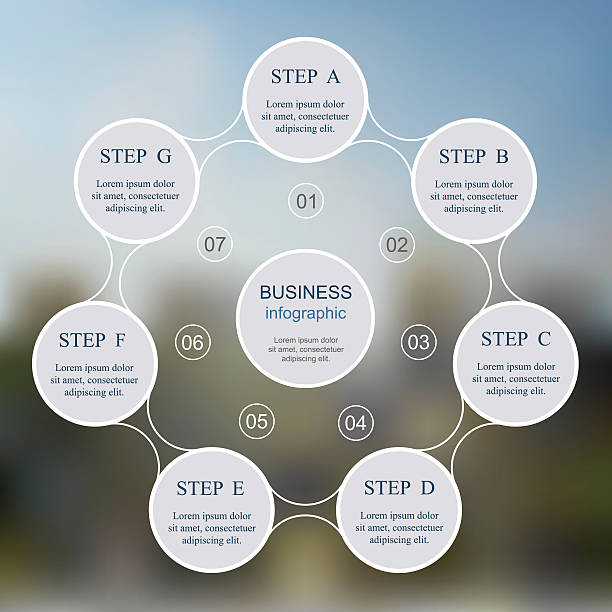Choose a trust attorney who will help you make a crucial decision. It’s very important to get the best attorney.
It impacts your estate planning and financial future. The right attorney can safeguard your assets and ensure your wishes are honored.
But how do you choose wisely? The process can seem daunting. With so many options, it’s easy to feel overwhelmed.
Understanding the role of a trust attorney is the first step. They specialize in managing trusts and estates. Their expertise is vital for effective estate planning.
Credentials and experience matter. Look for attorneys with a strong background in trust and estate law. Specialization is key.
Communication is also important. You need an attorney who listens and responds promptly. Good communication builds trust and ensures your needs are met.
Reputation is another factor. Check reviews and ask for referrals. A well-regarded attorney is more likely to provide quality service.
Consider location, too. A local attorney understands state-specific laws. They can offer personalized advice tailored to your situation.
Fee structures vary, so understand the costs involved. Transparency in fees helps avoid surprises later.
Ultimately, the right trust attorney will align with your goals. They will guide you through the complexities of estate planning. Making an informed choice ensures peace of mind for you and your loved ones.
Understanding the Role of a Trust Attorney
A trust attorney plays a pivotal role in managing your trust and estate planning needs. These legal professionals specialize in creating and maintaining various types of trusts. They ensure that your assets are distributed according to your wishes.
Their expertise helps prevent disputes among beneficiaries. Trust attorneys guide you through complex legal processes. This helps prevent costly errors and time-consuming litigation.
Additionally, they offer valuable insights on asset protection. Trust attorneys develop strategies to shield your wealth from unnecessary taxes and creditors. They ensure compliance with evolving regulations.
Trust attorneys also aid in setting up living trusts. These allow for asset management during your lifetime. Living trusts can reduce the burden on family members during incapacitation or after death.
Key responsibilities of a trust attorney include:
- Drafting and reviewing trust documents
- Advising on tax implications
- Facilitating trust administration
- Assisting with trust asset management
Their involvement is essential for anyone seeking to secure their financial legacy. Trust attorneys also communicate with trustees and beneficiaries. This ensures everyone understands their roles and responsibilities.
In today’s complex legal environment, a trust attorney provides clarity. Their role is to anticipate challenges and adapt strategies accordingly. This foresight is vital to safeguarding your estate and achieving your financial goals.
Engaging a qualified trust attorney early in your planning process is wise. Their comprehensive understanding of trust law can lead to optimized estate plans. Partnering with them provides peace of mind knowing your interests are protected.

Trust Attorney vs. Estate Attorney: Key Differences
Understanding the differences between a trust attorney and an estate attorney is crucial. Both play vital roles in estate planning but focus on distinct areas. Knowing these differences helps you choose the right professional.
A trust attorney primarily deals with creating and managing trusts. They ensure your assets are handled per your wishes. Their focus is on drafting trust documents and advising on tax strategies.
Estate attorneys, on the other hand, manage the broader aspects of estate planning. They help with wills, probate processes, and guardianships. Estate attorneys often address issues related to asset distribution after death.
Key distinctions include:
- Trust attorneys: Specialize in trusts, handle asset management, and provide tax advice.
- Estate attorneys: Focus on wills, probate, and guardianship concerns.
Choosing between these professionals depends on your specific needs. Consider the legal tasks you want assistance with. If trusts are your main concern, a trust attorney is appropriate.
If your needs involve broader estate planning, an estate attorney might suit you better. Both types of attorneys are crucial in different situations. Understanding their roles helps ensure you receive the right guidance tailored to your circumstances.
Why You Need a Specialized Trust Lawyer
When managing complex financial matters, specialization is vital. A specialized trust lawyer has expertise in handling trusts. This expertise can be invaluable in securing your assets and ensuring compliance with legal frameworks.
Trust lawyers focus solely on creating and managing trusts. They have deep knowledge of trust-specific laws. This specialization helps them navigate intricate legal requirements efficiently.
Choosing a trust lawyer offers numerous advantages. Their sole focus on trusts means they understand the nuances of trust law better than general attorneys. This leads to more informed advice tailored to your needs.
Benefits of hiring a specialized trust lawyer include:
- Deep understanding of state and federal trust laws
- Expertise in tax implications related to trusts
- Proficiency in creating flexible trust structures
- Ability to manage complex trust agreements with ease
Hiring a specialized trust lawyer ensures dedicated attention to trust-related issues. Trusts can be complex, involving significant legal and tax implications. With their refined skills, they work to maximize trust benefits and asset protection.
Working with a specialized trust lawyer also means you’re entrusting your matters to someone with a proven track record. Their focus on this legal niche often leads to better outcomes for their clients. A specialized trust lawyer becomes an essential ally in planning your future.
Essential Qualifications and Credentials to Look For: (Choose a Trust Attorney)
Selecting a trust attorney requires careful consideration of qualifications. Ensuring your attorney possesses the right credentials is crucial. This determines their ability to handle your specific needs effectively.
Seek attorneys who have passed the bar exam in your state. This certifies their basic legal competence. Additionally, consider those with memberships in local or national bar associations.
Experience is a key factor in choosing the right trust attorney. Look for lawyers with a focused practice in trust and estate law. This specialization indicates familiarity with nuances and complexities.
An advanced degree or certification in estate law can be a strong asset. Credentials such as a Master’s in Taxation or a certification from the American College of Trust and Estate Counsel (ACTEC) highlight expertise. These credentials demonstrate a commitment to continuing education in estate planning.
Other important credentials to consider include:
- Bar association memberships specific to trust and estate law
- Certifications from estate planning associations
- Advanced degrees in related fields, such as tax law
Client reviews and testimonials can provide insights into an attorney’s effectiveness and professionalism. They offer a perspective on client satisfaction and service quality. Reviews can help assess the attorney’s ability to meet expectations.

Evaluate the attorney’s commitment to staying abreast of changes in trust law. This ongoing education ensures that they can adapt strategies as laws evolve. It is a critical aspect of effective estate planning.
Choosing an attorney with the right credentials assures not only legal competence but also an expert understanding of your needs. By evaluating credentials and experience, you can make a well-informed choice. This careful selection process is crucial for securing your estate’s future.
How to Find Trust Fund Lawyers Near You
Locating a reliable trust fund lawyer nearby starts with online resources. Websites like Avvo and the Martindale-Hubbell directory offer comprehensive lawyer listings. These platforms provide detailed profiles, complete with ratings and client reviews.
Local bar associations are valuable resources in your search. Many offer lawyer referral services that can connect you to qualified attorneys. They often ensure the attorneys on their list are in good standing.
Personal referrals from friends or colleagues can be incredibly helpful. Someone who has worked with a trust attorney may provide insights into their experience and professionalism. This can guide you to attorneys who are trustworthy and proficient.
Using search engines with location-based queries can yield quick results. Terms like “trust fund attorneys near me” or “trust lawyers” can show local law firms specializing in estate law. Be sure to verify their specialization from their websites.
Steps to Find a Trust Lawyer:
- Utilize online lawyer directories with filters for location and specialty.
- Contact local bar associations for referrals.
- Seek personal recommendations from acquaintances.
When assessing potential lawyers, look at their credentials and reviews. A professional website with clear information on their services is a good indicator of credibility. Feedback from previous clients can also offer valuable guidance.
Additional Tips:
- Check each attorney’s licensing status with the state bar.
- Visit law firms in person to assess their professionalism.
- Consider the attorney’s experience and focus on estate law.

Trust attorneys play a crucial role in securing your estate planning. By leveraging these resources, you can find skilled lawyers near you. Making informed choices ensures you receive the best possible legal assistance.
Researching and Shortlisting Potential Attorneys
Research is key to finding the right trust attorney. Start by gathering a list of potential candidates from your initial search. This list can include recommendations and top-rated attorneys from online directories.
Once you have your list, explore each attorney’s profile. Look for details about their specialization in trust and estate law. Ensure they have relevant qualifications and a proven track record.
Reading client reviews provides valuable insight into an attorney’s practice. Reviews can reveal an attorney’s professionalism, communication skills, and success rates. Aim for consistent positive feedback and testimonials.
After evaluating profiles and reviews, narrow your list down to a shortlist. Select only those who meet your criteria and seem most promising. Preparing this refined list is essential for the next stage: consultations.
Key Steps in Shortlisting Attorneys:
- Compile a list of potential lawyers from trusted sources.
- Review their profiles for specialization and qualifications.
- Read client reviews to gauge their reputation.
- Create a shortlist of attorneys who best match your needs.
Thorough research ensures your shortlist includes only competent attorneys. This step sets the stage for effective consultations and, ultimately, wise decision-making.
Verifying Credentials, Experience, and Reputation
Verifying credentials is crucial when choosing a trust attorney. Confirm that each attorney is duly licensed to practice law in your state. This is a basic requirement that ensures they meet professional standards.
An attorney’s experience is just as important. Look for those who have specialized in trust and estate law for several years. Experience often translates to expertise, which can be invaluable in complex cases.
Reputation is another key factor. Investigate an attorney’s standing in the legal community. Peer reviews and accolades can provide insight into their professional reputation and respect among colleagues.
Steps to Verify an Attorney’s Credentials:
- Check state licensing boards for active licenses.
- Review their years of experience in trust and estate law.
- Research any awards or recognitions received.
A good reputation can also be confirmed through client testimonials and reviews. They offer firsthand accounts of past clients’ satisfaction and the attorney’s effectiveness. Reach out to references provided by the attorney for direct feedback.
Taking these steps seriously will help you build confidence in your choice. Ensuring that an attorney is credible, experienced, and well-regarded forms a solid foundation for a successful partnership.

Questions to Ask During the Initial Consultation
Your first consultation with a potential trust attorney is essential. It sets the stage for your working relationship. Use this opportunity to gather crucial information about their approach and expertise.
Start by asking about their experience specifically with trust law. Focus on the number of similar cases they have handled. Experience in your particular needs can offer peace of mind.
Inquire about their process in creating or managing trusts. Understanding their approach can help you gauge their organizational skills. It also allows you to see if their process aligns with your expectations.
Key Questions to Consider:
- How long have you practiced trust law?
- What is your approach to managing trusts?
- Can you provide examples of past successes?
Ask about communication preferences and availability. How often will they update you, and what’s the best way to reach them? Consistent communication is vital for maintaining a strong attorney-client relationship.
Fee structures should also be on your list. Clarity on costs helps avoid surprises later. Discuss their billing practices and what services incur additional fees.
More Questions on Fee Structures:
- What is your billing rate?
- Are there additional costs for specific services?
- How do you handle billing for ongoing support?
Finally, discuss their approach to problem-solving. This can reveal their creativity and ability to adapt to challenges. Their answers can help you determine if they are proactive in addressing potential issues.
This consultation is your chance to assess if the attorney is the right fit. Asking these key questions can help you make an informed decision.
Assessing Communication Skills and Client Service
Strong communication is the backbone of a good attorney-client relationship. Your trust attorney should be clear, concise, and approachable. Effective communication ensures you understand every step of the process.
Observe how they respond to your initial inquiries. Are they prompt and comprehensive? Delays or vague answers could indicate potential issues later on.
Key Aspects of Communication:
- Prompt responses to emails and calls
- Clarity in explaining legal concepts
- Regular updates on case progress
During interactions, note their ability to break down complex concepts. It’s crucial they make you feel comfortable asking questions. Their willingness to educate can build trust and confidence.
Client service goes hand-in-hand with communication. A trust attorney should be professional and courteous. Their attitude reflects how they value your business and your specific needs.

Request testimonials or reviews from previous clients if possible. Such feedback can give insight into their service level. Positive reviews often highlight strong communication and effective client service.
Your trust attorney’s communication style should align with your expectations. This assures you they will manage your affairs professionally and with clarity.
Understanding Fee Structures and Costs
When choosing a trust attorney, understanding fee structures is crucial. Not all attorneys charge the same way. Fees can vary widely, impacting your decision.
Most trust attorneys use one of three common fee structures. Knowing each can help you budget and compare options.
Common Fee Structures:
- Hourly Rate: Charges based on the hours worked.
- Flat Fee: A fixed price for specific services.
- Retainer Fee: An upfront fee to secure services.
Hourly rates can add up quickly, particularly for complex cases. Flat fees, on the other hand, offer predictability. It covers everything from start to finish.
Retainers secure an attorney’s availability. However, additional costs may arise as the work progresses. Clarify what these might entail beforehand.
Important Cost Considerations:
- Additional charges such as filing fees or administrative costs
- Payment methods accepted
- Possibility of cost adjustments as a case progresses
Ask for a detailed breakdown of what each fee covers. Transparency here is non-negotiable. It helps avoid surprises later on and sets clear expectations.
Discuss payment terms before signing any agreement. This ensures there are no misunderstandings about when and how payments are due.

Ultimately, balancing cost with the quality of service is vital. Ensure you understand fully what you’re paying for to avoid unexpected expenses.
Evaluating Track Record and Success Rate
A trust attorney’s track record provides insight into their competence. It reflects how they handle various cases. A strong success rate can be reassuring.
Start by asking the attorney about their past cases. Inquire specifically about cases similar to yours. Success in these instances shows relevant expertise.
Key Aspects to Review:
- Types of trusts handled
- Client testimonials and reviews
- Outcomes of previous cases
Client testimonials can offer valuable insight. Look for feedback on their problem-solving abilities and satisfaction with outcomes. Positive reviews are a good indicator of reliability.
Understanding how many cases they’ve handled successfully is crucial. Success rates can tell you about their effectiveness. However, remember that each case is unique.
Finally, don’t hesitate to ask for references. Speaking with former clients can provide deeper insights. It’s a chance to ask questions about their personal experiences with the attorney.
The Importance of a Personalized Approach
Every estate plan is unique. A personalized approach in trust and estate planning ensures that your specific needs are met. A cookie-cutter strategy may overlook crucial details.
Trust attorneys should listen closely to your goals. They must understand your family dynamics and personal circumstances. This understanding helps them craft tailored solutions.
Personalized Planning Benefits:
- Aligns with personal and family goals
- Considers special circumstances and wishes
- Adapts to changing situations
Tailored advice can mitigate potential legal issues. It also ensures maximum tax benefits and protection for beneficiaries. This approach adapts as your needs evolve.
A personalized plan is flexible. It accommodates new developments in your life. This is crucial for long-term satisfaction and peace of mind.
Red Flags and Common Mistakes to Avoid
Choosing a trust attorney requires caution. Knowing what to avoid can help you make a better choice. Awareness of red flags protects your interests.
Many fall into common traps when selecting a trust attorney. This section will help you recognize warning signs.
Red Flags to Watch Out For:
- Poor or unclear communication
- Lack of transparency in fees
- Limited experience in trust and estate law
Another mistake is hiring based on cost alone. Cheap rates might reflect less experience or low-quality service. It’s essential to balance cost and quality.
Avoid attorneys who lack professional credentials or face disciplinary actions. Verify their reputation through reviews and testimonials. This helps ensure reliability and competence.
Mistakes to Avoid:
- Rushing the selection process
- Ignoring past client experiences
- Failing to verify legal expertise
Lastly, watch for attorneys who pressure you to make quick decisions. You need time to consider your options. Choose wisely to secure your future.

The Benefits of Hiring a Local Trust and Estates Attorney
Choosing a local trust attorney offers numerous advantages. Proximity ensures accessibility for consultations. Being nearby means they understand local laws and regulations affecting your estate planning.
Local attorneys also have a strong network in the community. This can include connections with local accountants, appraisers, and financial advisors. These connections can streamline your planning process and provide comprehensive support.
Benefits of Hiring Local:
- Familiarity with state-specific laws
- Strong local professional networks
- Easier to meet face-to-face
Hiring locally can also lead to better communication. Meeting in person enhances understanding and trust. It’s comforting to know your attorney is easily reachable. Local attorneys are often more in tune with area-specific estate challenges. This makes them better equipped to cater to your needs.

Ensuring Ongoing Support and Long-Term Relationship
Building a long-term relationship with your trust attorney is crucial. This ensures they are familiar with your changing needs over time. A strong relationship fosters trust and understanding.
An attorney who knows your family dynamics can offer more personalized advice. They can easily adapt your estate plans as your goals evolve. Continuous support means you’ll always have expert guidance.
Key Aspects of Ongoing Support:
- Regular updates on changes in estate law
- Periodic reviews of your estate plan
- Responsive communication for any arising concerns
Ongoing support also includes a commitment to transparency. Your attorney should keep you informed about any legal changes that might affect your estate. This proactive approach helps in avoiding potential legal issues and ensures your estate plans remain effective. Thus, choosing an attorney committed to a lasting partnership offers peace of mind.
The Role of Technology in Modern Trust and Estate Planning
In today’s digital age, technology plays a crucial role in trust and estate planning. From managing documents to streamlining communication, technology offers many benefits. It enhances efficiency and accessibility for both attorneys and clients.
Technology Benefits in Estate Planning:
- Secure online document storage
- Virtual meetings for convenience
- Automated updates on legal changes

These tools provide a seamless experience and help clients stay informed. Secure platforms ensure that sensitive information remains protected. Moreover, virtual meetings allow for flexible and timely discussions, making the planning process smoother. Adopting modern technology is essential for efficient estate management.
Handling Conflicts of Interest and Ethical Considerations
When choosing a trust attorney, it’s vital to address any potential conflicts of interest. Such conflicts can harm the attorney-client relationship. Be proactive in questioning an attorney’s past and present associations.
Key Ethical Aspects to Consider:
- Transparency in disclosing conflicts
- Commitment to professional conduct
- Adherence to ethical guidelines
An ethical attorney will prioritize your interests above all else. They should be willing to discuss any issues openly. This transparency fosters trust and ensures a strong working relationship. Ultimately, a high ethical standard in your attorney will protect your estate and beneficiaries.
Preparing for Your First Meeting with a Trust Attorney
Being prepared is key to a productive first meeting with a trust attorney. Start by gathering all relevant documents. These may include financial statements, existing wills, and any estate plans.
Consider writing down your goals and concerns. This helps to ensure clear communication. Knowing what you want allows the attorney to offer tailored advice. It also helps focus the discussion on your unique needs.
Checklist for Your First Meeting
- Bring financial records and previous legal documents
- Note down personal goals and questions
- Understand your estate’s basic structure
Being prepared reduces stress and enhances the meeting’s effectiveness. It’s a chance to see if this attorney is the right fit. Their responses can indicate their expertise and dedication. This initial meeting is crucial for establishing a trusting relationship.

Transitioning to a New Trust Attorney if Needed
Switching trust attorneys can seem daunting. However, it’s sometimes necessary to better meet your needs. Start by reviewing your existing agreement with your current attorney to understand any obligations or notice periods.
Approaching the transition with a clear plan is crucial. Gather all pertinent documents for a smooth handover to your new attorney. Communicate your reasons for change openly and professionally.
Steps for Switching Attorneys
- Review your current attorney’s contract
- Collect all relevant documents
- Communicate respectfully with your current attorney
Transitioning is a chance to improve your estate planning experience. With careful consideration, it ensures you’re aligned with the right legal partner.
Frequently Asked Questions About Trust Attorneys
Choosing a trust attorney raises many questions. Here, we address some common inquiries to help guide your decision-making process.
What Does a Trust Attorney Do?
A trust attorney specializes in creating and managing trusts. They help ensure that your assets are distributed according to your wishes. They also provide advice on minimizing tax burdens and avoiding probate.
How Do I Know If I Need a Trust Attorney?
If you have substantial assets or complex family dynamics, a trust attorney is beneficial. They offer expertise in estate planning tailored to your specific circumstances. Consulting with a professional can save your heirs time, money, and stress.
How Are Trust Attorneys Paid?
Trust attorney fees vary. They may charge hourly rates, flat fees, or a percentage of the estate’s value. Discuss fee structures during the initial consultation to prevent surprises later on.
What Should I Prepare for My First Meeting?
Bring a list of your assets and any existing estate planning documents. Knowing your goals for the trust can guide your discussion. Preparation makes your initial meeting more productive and informative.
Key Considerations When Choosing a Trust Attorney
- Experience and specialization in trust law
- Fee structure transparency
- Strong client testimonials
By seeking answers to these questions, you can make a more informed decision about hiring a trust attorney. This ensures the best possible management of your estate.
Conclusion: Making an Informed Choice for Your Future
Selecting the right trust attorney is crucial for effective estate planning. Their expertise directly impacts asset protection and distribution. By focusing on key factors, you can ensure your interests are safeguarded.
Consider an attorney’s credentials, reputation, and communication style. These elements help build a strong, trusting relationship. A skilled attorney is not only proficient in law but also attentive to your unique needs.
Do not underestimate the importance of aligning goals with your chosen professional. Long-term peace of mind stems from making thoughtful choices today. With the right trust attorney, you are well-equipped to protect your legacy.
You can check our other blogs here about gift card





